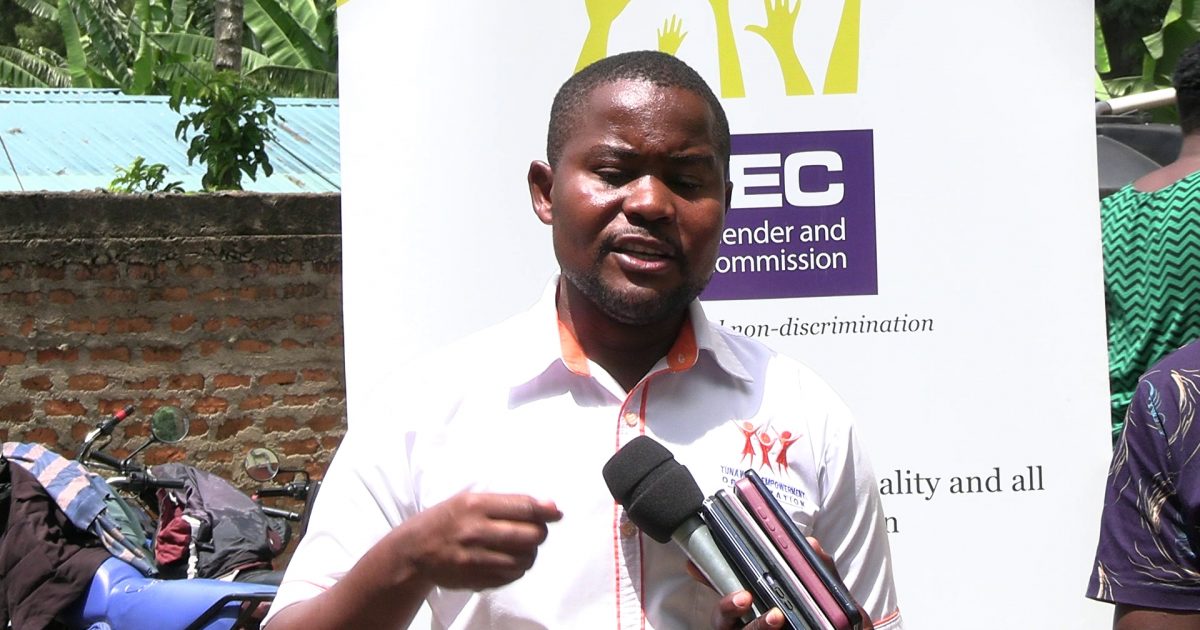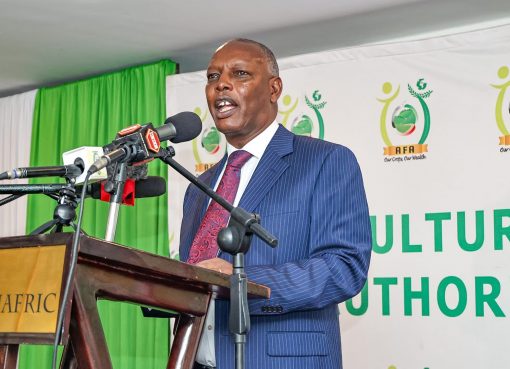The National Gender and Equality Commission (NGEC) will continue to partner with the counties, the national government, parliament and the community to address the rising cases of Gender Based Violence (GBV) in the country.
The Commission Vice Chairperson Thomas Koyier, speaking at ICT Hall in Migori town during the discussion with the various groups including women, youth, gender professionals and men, highlighted that they will continue to discharge their duty as a communication distributor of awareness messages against GBV.
NGEC was established by the National Gender and Equality Commission Act of 2011 to focus on special interest groups, including women, youth, persons with disabilities, children, older members of society, minorities, and marginalized groups.
It is also tasked with promoting gender equality and freedom from all forms of discrimination through compliance with established policies, laws and practices to make society free from gender inequality and all forms of discrimination.
Koyier noted that in the last three weeks, the country has lost 21 women through femicide, a worrying trend that if unchecked can lead to more harm and loss of life.
Migori County has also seen a surge of GBV that currently stands at 51 percent, making the county among the top five counties in the country that continue to report cases of GBV.
Koyier said that the economic loss associated with femicide is unimaginable to the family and the country urging the community to stand up and voice their voices to address the negative vice.
The vice chair also added that the commission will closely work with parliament to relook at the existing laws and policies and how effective they can be tailored to address the Femicide menace in the county.
Koyier also said that through engagement with the counties, they will aim for the possibilities of introducing courses, programmes and policies required to help educate and sensitize the community on issues of GBV.
He, however, called upon for cultural change through economic empowerment to help address issues of economic inequality and other retrogressive cultures like Female Genital Mutilation (FGM)in the county.
Koyier also said that they will be relooking and mainstreaming the GBV budgeting and accessing how the county has been doing it to align it with the national government budget.
“We also want to relook at the issues of empowerment in education, employment and regional balancing to address and solve issues of economic injustice and resource distribution,” he said.
Migori County Executive Committee Member (CECM) in charge of Gender, Education and Sports Rahab Robi highlighted that the county has been empowering the community through the economic development programme to eradicate Gender Based Violence and tipple threat.
Early this year, the county through the leadership of Migori Governor Ochilo Ayacko launched a Sh40 Million economic empowerment programme that aimed at uplifting local communities and boosting the social economic development of the county; to address challenges of triple threats (early marriages, teenage pregnancies and HIV) as well as GBV.
Meanwhile, Tunaweza Empowerment official Mwita Vincent said that his organisation has been educating and engaging the youths on issues of GBV to help in the fight against women’s violation.
Mwita noted that partnerships with various organisations on programmes like Men United Ready for Action (MURA) and Men End FGM (MEF) foundation had made men understand the effects of GBV as well as take necessary actions to combat the vice, especially in the Kuria community.
By Beryl Akinyi and Makokha Khaoya





